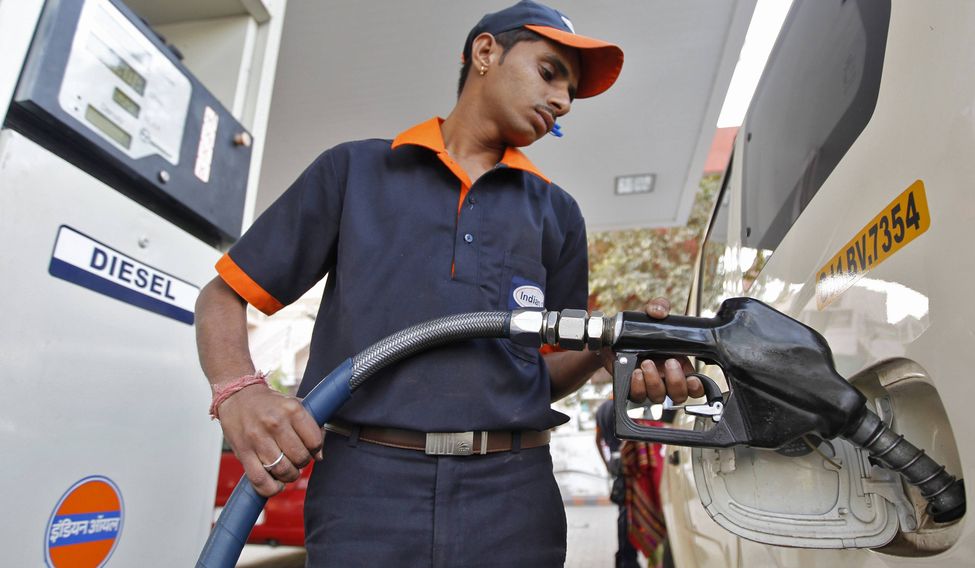With crude oil going above $60 a barrel and the Organization of the Petroleum Exporting Countries (OPEC) expected to extend ouput cuts later this month, the Indian government faces a difficult decision to renew the excise reduction on transport fuels in this election season.
The Indian basket, comprising 73 per cent sour-grade Dubai and Oman crudes, and the balance in sweet-grade Brent, closed trade on Monday at $60.86 for a barrel of 159 litres, which was higher than the previous close on Friday at $60.27.
The 13-nation OPEC cartel is due to meet on November 30 to consider extending production cuts introduced since the start of this year in a bid to lower global inventories and support prices.
In May, OPEC agreed to extend until March 2018 an oil output cut agreement put in place for six months effective from January 1 and which expired in June. Non-OPEC producers led by Russia also agreed to join the extension till next March.
Oil prices had earlier fallen by more than 50 per cent in less than two years due to a supply glut, from levels of over $120 a barrel.
Leading OPEC member Saudi Arabia's Petroleum Minister Khalid Al-Falih said at the Asian Ministerial Energy Roundtable in Bangkok earlier this month that while global stockpiles are declining and demand is increasing, there is, however, still a significant inventory level in the market.
India's oil imports during October shot up by 27.89 per cent to $9.29 billion, from $726 billion in the same month last year.
"The global Brent prices have increased by 19.42 per cent in October 2017 vis-a-vis October 2016 as per World Bank commodity price data," the Commerce Ministry said here last week while releasing the trade data.
Moreover, with exports growth declining in October for the first time in 13 months, India's trade deficit widened to $14 billion, as against $11.13 billion in October last year.
India imports over 80 per cent of its crude oil requirements which translates to 157.5 crore barrels annually.
Last month, the government cut excise duty on transport fuels by Rs 2 a litre after the petrol price had progressively jumped by Rs 7.80 per litre and diesel by Rs 5.70 to rise to an all-time high in Delhi.
The government had cumulatively hiked excise on petrol by Rs 11.77 per litre and on diesel Rs 13.47 per litre between November 2014 and January 2016 to absorb part of the benefit of falling global oil prices.
While taxes from the petroleum sector rose from Rs 1.3 lakh crore to Rs 2.1 lakh crore between the financial years 2014-15 and 2015-16, total excise duty collections rose from Rs 1.9 lakh crore to Rs 2.9 lakh crore, implying that over 81 per cent of the increase was on account of petroleum duties and cess.
The impact of higher oil prices is already seen in the balance sheets of Indian corporates with raw material costs going up.
The impact on government finances makes excise cut on fuels a difficult choice in view of the current year's target of keeping the fiscal deficit at 3.2 per cent, especially at a time of uncertainty in tax collections following the implementation of the Goods and Services Tax.
Moreover, a recent receapitalisation plan announced for state-run banks would also strain government finances. In a stimulus package aimed to boost flagging economic growth, create jobs and increase credit flow, the union cabinet last month approved a Rs 2.11 lakh crore recapitalisation plan for public sector banks and massive road infrastructure investment of nearly Rs 7 lakh crore over five years.
Of the support to banks, Rs 1.35 lakh crore will be raised through recapitalisation bonds and the remaining through budgetary support and market borrowings.





